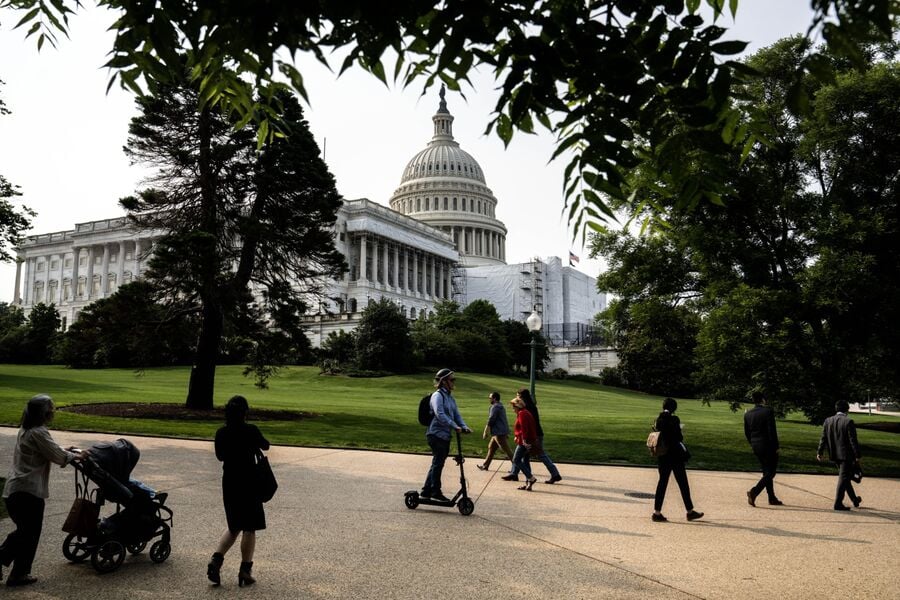

There’s a roughly one-in-four chance that the United States will hit the so-called X-date — at which the U.S. government runs out of cash — without a deal to raise the debt limit, and the odds are getting worse, according to JPMorgan Chase & Co.
“We still think the most likely outcome is a deal signed into law before the X-date, though we see the odds of passing that date without an increase in the ceiling at around 25% and rising,” JPMorgan chief U.S. economist Michael Feroli said Wednesday in a note to clients.
“In this latter scenario, we think there is a very high likelihood Treasury would prioritize principal and interest payments,” he wrote. “While doing so would avoid a technical default, there would still be several adverse effects, including a likely downgrade of the U.S. credit rating.”
A potential deal including cuts to federal government spending could reduce U.S. gross domestic product by 0.1% to 0.5% in 2024, depending on the details, JPMorgan's Feroli said.
According to a popular economic model for monetary policy known as the Taylor rule, that would suggest the Federal Reserve needs to make one fewer quarter-point interest-rate hike in order to bring inflation down, he said.

The move to charge data aggregators fees totaling hundreds of millions of dollars threatens to upend business models across the industry.

The latest snapshot report reveals large firms overwhelmingly account for branches and registrants as trend of net exits from FINRA continues.

Siding with the primary contact in a marriage might make sense at first, but having both parties' interests at heart could open a better way forward.

With more than $13 billion in assets, American Portfolios Advisors closed last October.

Robert D. Kendall brings decades of experience, including roles at DWS Americas and a former investment unit within Morgan Stanley, as he steps into a global leadership position.
Orion's Tom Wilson on delivering coordinated, high-touch service in a world where returns alone no longer set you apart.
Barely a decade old, registered index-linked annuities have quickly surged in popularity, thanks to their unique blend of protection and growth potential—an appealing option for investors looking to chart a steadier course through today's choppy market waters, says Myles Lambert, Brighthouse Financial.
